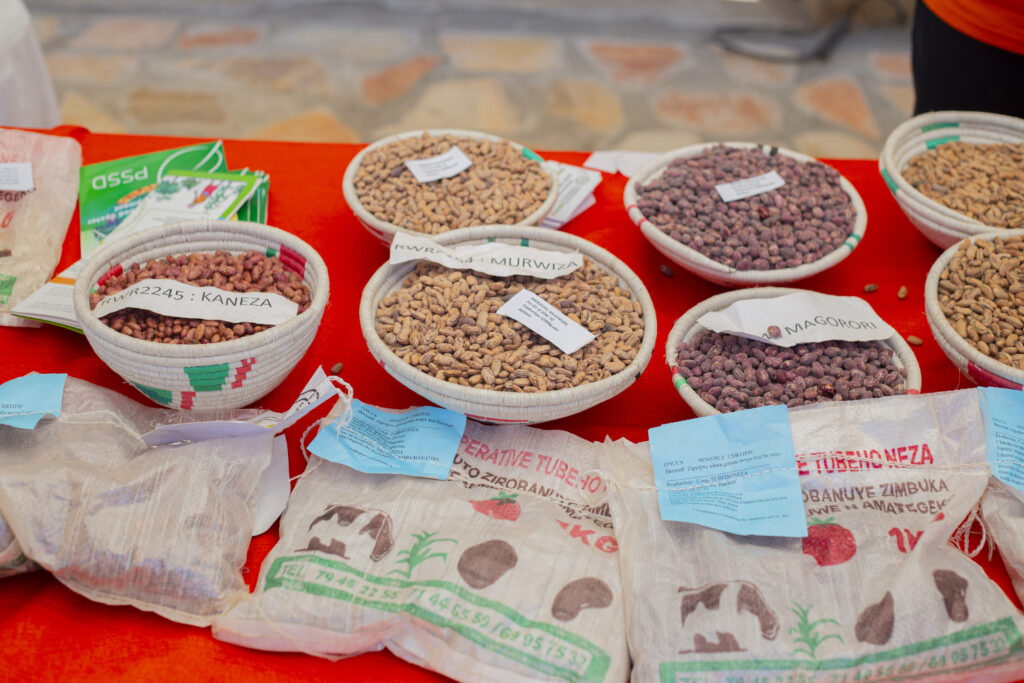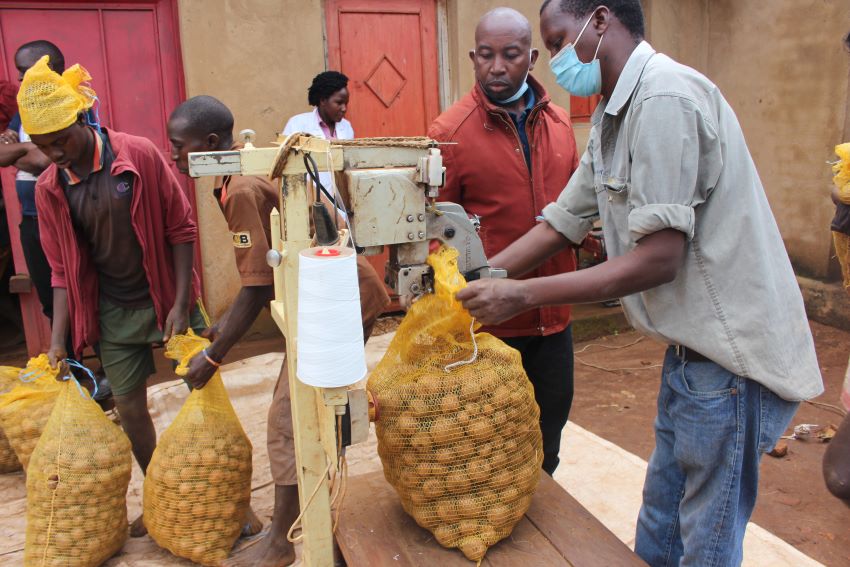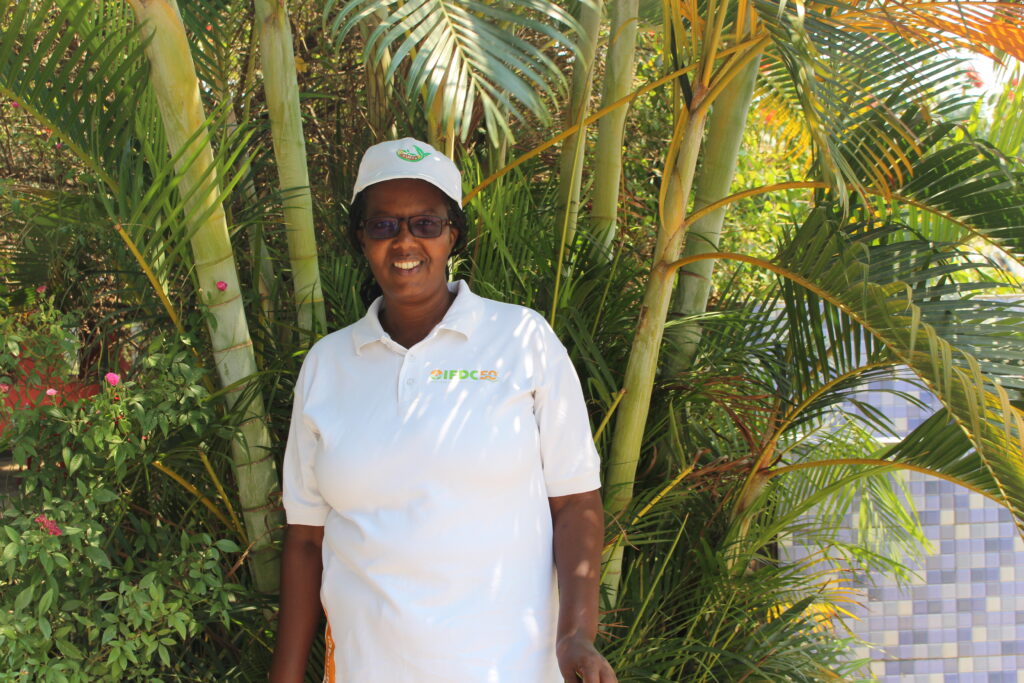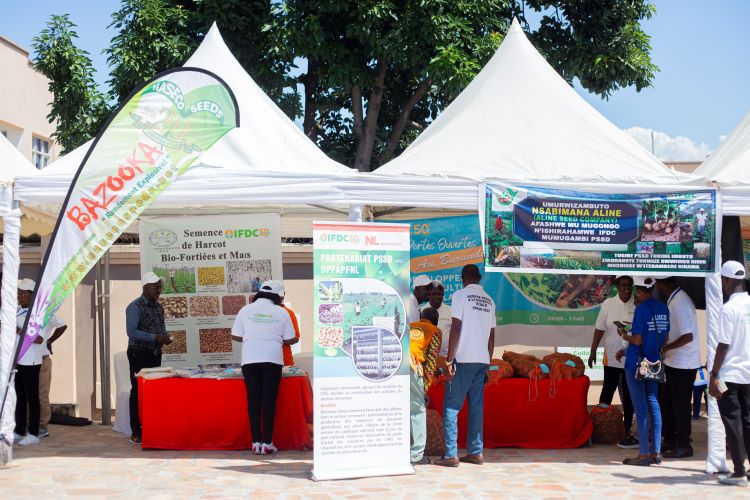
For years, small-scale farmers in Burundi struggled to access certified seeds due to a lack of local production and distribution infrastructure. The expense and scarcity of certified seeds limited smallholder farmers’ ability to grow quality crops and improve their livelihoods.
A 2018 national agricultural survey revealed a significant gap between the demand for quality seeds and their availability. Most farmers relied on uncertified seeds saved from previous harvests, which led to poor yields and low income. In 2019, only 10,394 farmers across Burundi, where around 90% of the population relies on agriculture, purchased certified seeds, leaving the majority without access to these much-needed high-quality inputs.
Recognizing these challenges, the Private Seed Sector Development (PSSD) project set out to revitalize Burundi’s seed market by developing sustainable systems for seed production, sales, and distribution. Working alongside local seed entrepreneurs and government partners, PSSD implemented activities designed to change how farmers access and use certified seeds.

“Since I started working with IFDC through the PSSD project, my seed multiplication business has improved tremendously. Today, I am known for my work and have even been honored to represent seed producers nationally.”
Aline Nsabimana
One of PSSD’s key strategies was the installation of demonstration fields, which showcased best practices for growing crops such as maize, beans, potatoes, and vegetables. By the end of 2023, over 21,000 demonstration fields had been established, providing farmers with crucial knowledge and exposure to improved farming techniques, including the use of certified seeds.
Aline Nsabimana, a 47-year-old seed entrepreneur from Mukike in Bujumbura, is a remarkable example of the project’s impact. Before joining PSSD, Aline struggled as a potato seller with limited access to both technical knowledge and quality seeds. In 2015, she cultivated potatoes on just half a hectare, and the yields were low. Realizing the need for change, she shifted to seed multiplication.

Aline’s turning point came in 2023 when an agronomist from the International Fertilizer Development Center (IFDC) noticed her in the National Seed Control and Certification Office (ONCSS) database. With the support of IFDC and PSSD, she expanded her production to six hectares, yielding 55 tons of potato seed in the first season. By 2024, her output had grown to 60 tons.
The PSSD project provided Aline with more than just financial support; she received training in seed marketing and benefited from learning opportunities at demonstration fields that helped her improve her techniques. Today, she operates a flourishing seed business, producing 60 to 75 tons of potato seed per season, employing 16 people, and leading her community as a respected entrepreneur.
Aline reflected on her success, “Since I started working with IFDC through the PSSD project, my seed multiplication business has improved tremendously. Today, I am known for my work and have even been honored to represent seed producers nationally. IFDC has truly helped me fly with my own wings.”
By 2023, the number of small-scale farmers purchasing certified seeds had soared to 75,241—an impressive sevenfold increase from 2019. In total, 335,855 farmer households have benefited from PSSD, far exceeding the initial goal of 178,000 households. Nearly 20% of Burundian households now have access to certified seeds, marking a significant leap forward for the country’s agriculture sector.

The PSSD project has also supported 333 seed companies, trained over 206,000 farmers in good agricultural practices, and significantly increased the participation of women in the seed market. Women now account for 45.8% of training participants and 37.6% of all seed buyers, reflecting a significant stride in gender inclusion.
The number of seed entrepreneurs also grew from just 33 in 2019 to 88 in 2023, an increase that is helping establish a vibrant seed market in Burundi. Since the PSSD project’s inception, a total of 7,879 metric tons of certified seed has been sold to smallholder farmers, contributing to improved food security and farmer livelihoods across the country.
The Private Seed Sector Development (PSSD) project (2018-2024), funded by the Dutch Ministry of Foreign Affairs and implemented by the International Fertilizer Development Center (IFDC), aims to increase the production and incomes of 178,000 farmer households in Burundi. The project works with private and public sector partners to promote the development of a private sector-led seed industry that is able to provide farmers with sustainable access to high-quality seed and agricultural advisory services.





